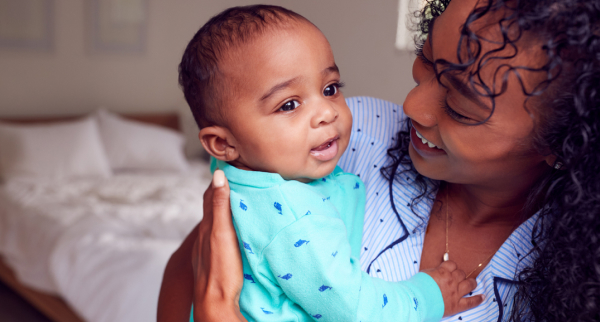Postpartum care and recovery after birth
The time after you’ve given birth is called the postpartum period. It begins soon after the delivery of the baby. It usually lasts 6 to 8 weeks and is known as the fourth trimester. It ends when your body has nearly returned to how it was before you got pregnant.
A lot of changes happen during the postpartum period for a woman and her newborn. That’s why it’s important to closely follow your doctor’s advice on follow-up appointments and caring for yourself and your baby when you leave the hospital.

Common postpartum concerns
After birth, you may experience a variety of physical changes and emotions. That’s completely normal. Your doctor can help you with concerns like:
-
Pain in your vagina
-
Bleeding or discharge from your vagina
-
Recovery from a C-section
-
Your mental and emotional health
-
Diet and exercise
-
Using the bathroom regularly after giving birth
-
Tender breasts and breast care
-
Caring for your newborn
-
Nursing your baby
-
Loss and grief if you had a miscarriage or stillbirth
-
Having sex again after giving birth
-
Safe sex and birth control
-
Family planning resources
If you have certain symptoms like heavy bleeding that doesn’t stop, a fever and trouble breathing, you should call your doctor right away.
Postpartum depression
Another postpartum concern to watch for is if you’re feeling down mentally. Some new mothers may experience postpartum depression. Symptoms of postpartum depression include:
-
Becoming irritated easily
-
Not sleeping well
-
Not feeling like eating
-
Having a hard time bonding with your baby
Postpartum post-traumatic stress disorder can also happen after a very stressful or hard delivery. Examples include birth complications like an emergency C-section or severe bleeding. Or if your baby was born with medical challenges. Your doctor can help direct you to a health provider specially trained to help you through these conditions.
Postpartum psychosis
In rare cases, some mothers may experience a severe mental health condition called postpartum psychosis. Some symptoms of postpartum psychosis are:
-
Seeing, hearing, feeling or smelling things that are not there
-
Having thoughts or beliefs that are not true
-
Feeling a “high” that is not normal for you
-
A very low mood
-
Feeling fearful or suspicious of others
-
Rapidly changing moods
If you’re experiencing any of these feelings, contact your doctor right away.
Other postpartum medical conditions
As a new mom, you should also be aware of other medical issues that can happen after pregnancy. Some of these conditions include:
-
Infections
-
Preeclampsia, a serious high blood pressure condition
-
Heavy bleeding or passing blood clots from your vagina
-
Severe headaches
-
Breast problems such as clogged milk ducts, which can lead to an infection called mastitis
If you have any concerns or worries about how you are healing, be sure to talk to your doctor.